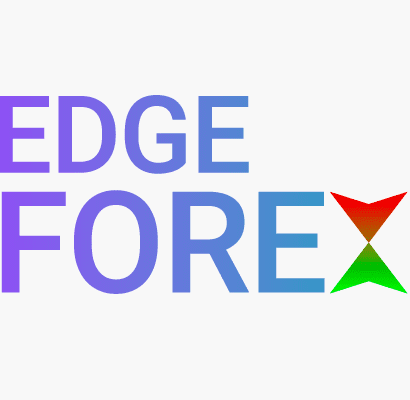The European Central Bank (ECB) has highlighted the importance of the French Government fiscal policy in maintaining market stability. In a recent statement, ECB Vice President Luis de Guindos emphasized that adherence to the new European Central Bank fiscal rules is essential for preventing market turmoil. The French bond market, a key indicator of investor confidence, has shown signs of strain, making the government’s fiscal approach even more critical. This article delves into the intricate relationship between the French government fiscal policy, the ECB’s fiscal rules, and the broader economic implications.
Importance of Adhering to ECB Fiscal Rules
The European Central Bank’s new fiscal framework requires member states to adhere to strict guidelines. These include maintaining public debt ratios below 60% of GDP and deficits under 3% of GDP. For France, which has a Debt to GDP ratio of 110%, this poses a significant challenge. Luis de Guindos of the ECB has repeatedly stressed the need for compliance. He warns that any deviation could upset the French bond market and, by extension, the broader Eurozone economy.
The French government fiscal policy must align with these rules to avoid negative market reactions. This alignment is crucial, given the premium on France’s borrowing costs compared to Germany’s. Recently, the yield on France’s 10-year government bond rose above 3.3%, its highest in a year. This increase reflects investor concerns about fiscal stability. The market response to the snap election called by President Emmanuel Macron has further underscored these worries.
French Bond Market Reactions
The French bond market is a sensitive barometer of investor sentiment. Any hint of fiscal policy misalignment can lead to significant market movements. Luis de Guindos noted that, so far, the French bond market’s evolution has been orderly. However, the widening of spreads indicates underlying tensions. The ECB’s role in monitoring and responding to these developments is crucial. They have tools like the Transmission Protection Instrument and Outright Monetary Transactions at their disposal, although they emphasize intervention only in cases of disorderly market reactions.
Analysts observed that the French bond market reacted somewhat positively to the first round of the recent elections. The far-right National Rally party topped the vote, but the likelihood of a hung parliament reduced investor fears. This outcome is viewed as favorable because it lessens the risk of extreme fiscal policies from either the far right or the far left. The market’s relief was reflected in the more calm trading of French bonds following the election.
Luis de Guindos’s Perspective on French government fiscal policy
Luis de Guindos’s insights provide a clear understanding of the ECB’s stance. He asserts that the French government fiscal policy must adapt to the ECB’s new fiscal framework to avoid upsetting the markets. This adaptation is not just about monetary policy but fundamentally about fiscal discipline. De Guindos’s comments echo those of ECB Chief Economist Philip Lane, who recently remarked on the French bond sell-off. Both emphasized that the market movements have been orderly, which precludes immediate ECB intervention.
De Guindos also highlighted that the markets had not shown signs of turmoil despite the recent political developments in France. The steady evolution of the French bond market suggests that investors are cautiously optimistic. However, this optimism hinges on the government’s commitment to fiscal rules. The ECB’s new framework, released in March, outlines stringent requirements for high-debt countries like France. Meeting these requirements is crucial for maintaining market stability.
Challenges and Opportunities for France
France faces significant challenges in aligning its fiscal policy with ECB rules. The country’s debt to GDP ratio of 110% is well above the ECB’s threshold. Reducing this ratio requires careful planning and execution. The French government must submit a four-year fiscal plan to the European Commission, detailing how it will achieve fiscal targets. This plan must be credible and robust to gain investor confidence.
Despite these challenges, there are opportunities for France. By adhering to the ECB’s fiscal rules, France can enhance its economic stability and attract more investment. A stable French bond market benefits not only France but also the broader Eurozone. It helps maintain low borrowing costs and supports economic growth. The French government fiscal policy, therefore, plays a pivotal role in the region’s economic health.
The Broader Economic Implications of the French government fiscal policy
The French government fiscal policy has broader implications for the Eurozone. As one of the largest economies in the region, France’s fiscal health impacts the entire monetary union. The ECB’s fiscal rules aim to ensure that all member states maintain sustainable debt levels. Compliance with these rules helps prevent financial crises and supports long-term economic stability.
Luis de Guindos’s warnings underscore the interconnectedness of Eurozone economies. If France fails to adhere to the fiscal rules, it could trigger negative spillover effects. These could include higher borrowing costs for other member states and reduced investor confidence in the Eurozone. Therefore, the French government fiscal policy is not just a national issue but a regional one.
Conclusion
In conclusion, the French government fiscal policy is crucial to market stability. Adherence to the European Central Bank’s fiscal rules is essential for maintaining investor confidence and preventing market turmoil. The French bond market’s reaction to political and fiscal developments highlights the sensitivity of investors to fiscal discipline. Luis de Guindos’s emphasis on fiscal policy adaptation reflects the ECB’s commitment to economic stability. France faces significant challenges, but by aligning its fiscal policy with ECB rules, it can enhance its economic prospects and contribute to the broader stability of the Eurozone.
Click here to read our latest article National Rally Surges in French Election
The post French Government Fiscal Policy Crucial to Market Stability, Warns ECB appeared first on Edge-Forex :.
This post is originally published on EDGE-FOREX.
